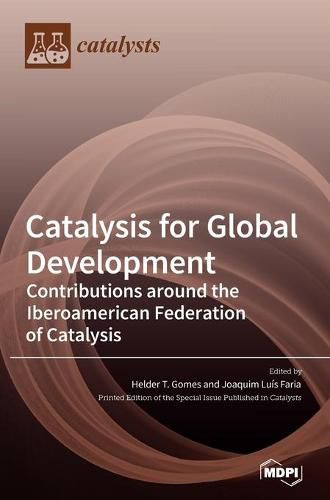Readings Newsletter
Become a Readings Member to make your shopping experience even easier.
Sign in or sign up for free!
You’re not far away from qualifying for FREE standard shipping within Australia
You’ve qualified for FREE standard shipping within Australia
The cart is loading…






This title is printed to order. This book may have been self-published. If so, we cannot guarantee the quality of the content. In the main most books will have gone through the editing process however some may not. We therefore suggest that you be aware of this before ordering this book. If in doubt check either the author or publisher’s details as we are unable to accept any returns unless they are faulty. Please contact us if you have any questions.
Adequate quality of life and well-being of modern societies is only achievable with sustainable manufacturing processes that efficiently use raw materials, eliminate waste, and avoid the use of hazardous materials. All this is hardly conceivable without catalysis. In a world concerned with the exploitation of natural resources, catalysis can offer direct synthesis routes that maximize resource efficiency. The Iberoamerican society is far too significant and far too involved in global development, owing to its natural richness of resources, not to have an essential role in current developments and future directions. Catalysis, in the Iberoamerican academic and industrial communities, is recognized as a relevant scientific discipline that supports several strategic industrial sectors through the manufacturing of products and materials, and the operationalization of processes to produce energy and other utilities. As a reflection of this, once every two years the Iberoamerican Congress on Catalysis takes place to share and discuss the state-of-the-art of this discipline with the Federation of Iberoamerican Catalysis Societies. This book collected sixteen outstanding contributions, stemming from this exceptional event-one which will undoubtedly mark a turning point and could be a source of inspiration to all those involved in catalysis, particularly the young generation of competent researchers taking their first steps in this incredibly complex and beautiful discipline.
$9.00 standard shipping within Australia
FREE standard shipping within Australia for orders over $100.00
Express & International shipping calculated at checkout
This title is printed to order. This book may have been self-published. If so, we cannot guarantee the quality of the content. In the main most books will have gone through the editing process however some may not. We therefore suggest that you be aware of this before ordering this book. If in doubt check either the author or publisher’s details as we are unable to accept any returns unless they are faulty. Please contact us if you have any questions.
Adequate quality of life and well-being of modern societies is only achievable with sustainable manufacturing processes that efficiently use raw materials, eliminate waste, and avoid the use of hazardous materials. All this is hardly conceivable without catalysis. In a world concerned with the exploitation of natural resources, catalysis can offer direct synthesis routes that maximize resource efficiency. The Iberoamerican society is far too significant and far too involved in global development, owing to its natural richness of resources, not to have an essential role in current developments and future directions. Catalysis, in the Iberoamerican academic and industrial communities, is recognized as a relevant scientific discipline that supports several strategic industrial sectors through the manufacturing of products and materials, and the operationalization of processes to produce energy and other utilities. As a reflection of this, once every two years the Iberoamerican Congress on Catalysis takes place to share and discuss the state-of-the-art of this discipline with the Federation of Iberoamerican Catalysis Societies. This book collected sixteen outstanding contributions, stemming from this exceptional event-one which will undoubtedly mark a turning point and could be a source of inspiration to all those involved in catalysis, particularly the young generation of competent researchers taking their first steps in this incredibly complex and beautiful discipline.